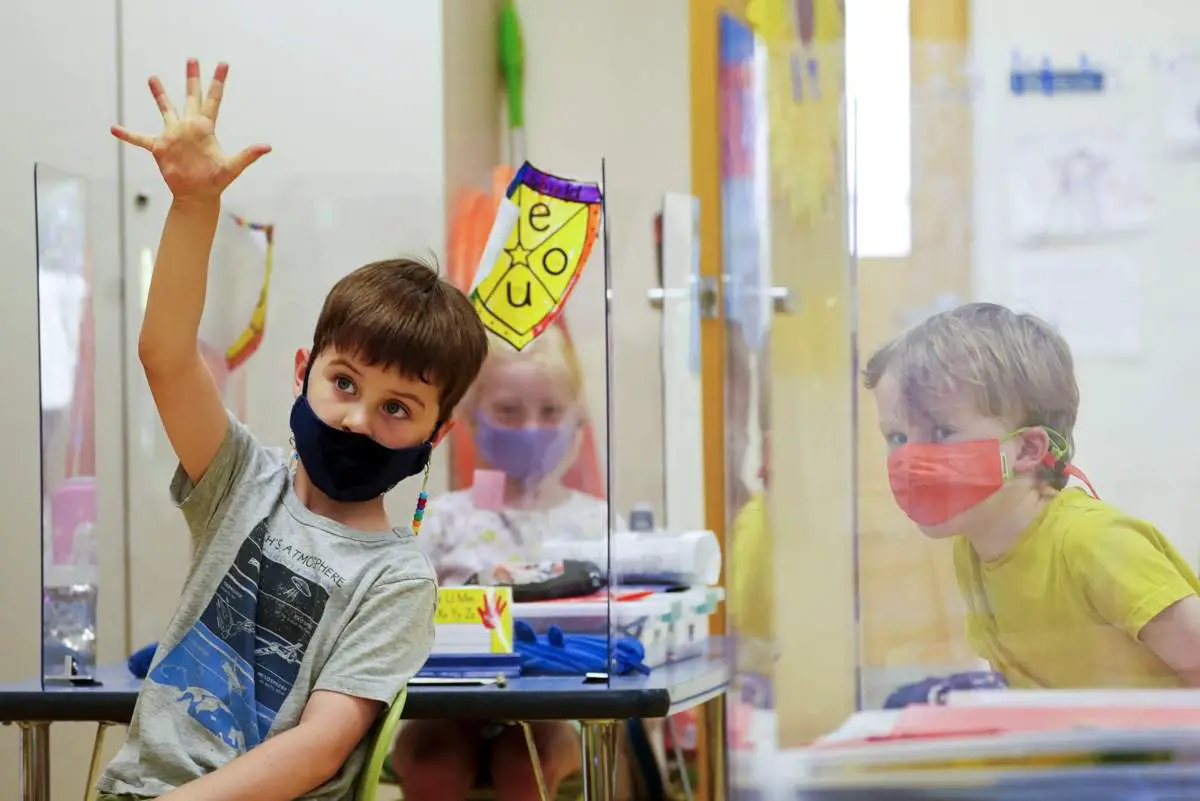There is much buzz about a new piece in The Atlantic in which Emily Oster, an economist at Brown University, argues that while mistakes were made during the heights of Covid-19, we should declare a “pandemic amnesty” and stop trying to hold politicians and bureaucrats responsible for their failures. In other words, Oster, argues, let’s simply let bygones be bygones, admit mistakes were made, and just move on from here.
That’s an interesting argument to make considering what it would mean for the next pandemic. While adults were impacted by temporary things like possible job loss or other disruptions, it’s children who continue to pay the price for draconian school closures and misguided policies that set back years of learning. Oster even admits that the data coming out now on test scores, suicide rates, and the general well-being of children resulting from prolonged lockdowns and school closures is alarming. That’s putting it mildly since the results were also quite predictable.
Nonetheless, Oster argues, even if some of the decisions were obviously wrong at that time and stood on the opposite side of “science,” we need to forgive and forget:
We have to put these fights aside and declare a pandemic amnesty. We can leave out the willful purveyors of actual misinformation while forgiving the hard calls that people had no choice but to make with imperfect knowledge. Los Angeles County closed its beaches in summer 2020. Ex post facto, this makes no more sense than my family’s masked hiking trips. But we need to learn from our mistakes and then let them go. We need to forgive the attacks, too. Because I thought schools should reopen and argued that kids as a group were not at high risk, I was called a “teacher killer” and a “génocidaire.” It wasn’t pleasant, but feelings were high. And I certainly don’t need to dissect and rehash that time for the rest of my days.
Moving on is crucial now, because the pandemic created many problems that we still need to solve.
The author states she argued for schools to open and was attacked for saying so, yet she’s willing to ignore the harm done and simply get on with fixing the nation’s problems without exposing the people who caused the most damage since March of 2020.
Despite the “historic declines” in test scores, Oster still believes in letting it all go by the wayside:
Student test scores have shown historic declines, more so in math than in reading, and more so for students who were disadvantaged at the start. We need to collect data, experiment, and invest. Is high-dosage tutoring more or less cost-effective than extended school years? Why have some states recovered faster than others? We should focus on questions like these, because answering them is how we will help our children recover.
When asked repeatedly, the nation’s foremost medical bureaucrat, Dr. Anthony Fauci, laughed off school closures saying, “kids are resilient.” Are they, Dr. Fauci? They’re still recovering from years of learning loss and missed opportunities.
Children were the most vulnerable to the Covid authoritarianism that swept the nation throughout the summer and fall of 2020. Schools were kept closed and virtual learning was the so-called solution to the problem. Many parents watched their once-vibrant students fall into regression and, in some cases, outright depression as their lives were ripped away from them. It’s one thing as an adult to lock yourself in your house and cut off your life willingly, it’s another thing to inflict it on children for unnecessarily prolonged periods of time.
Beyond education, Oster also acknowledges that people of all ages simply stopped taking care of their own health as hospitals limited surgeries, doctor visits became troublesome, and it was generally advised that it was simply better to stay home than risk going anywhere:
Many people have neglected their health care over the past several years. Notably, routine vaccination rates for children (for measles, pertussis, etc.) are way down. Rather than debating the role that messaging about COVID vaccines had in this decline, we need to put all our energy into bringing these rates back up. Pediatricians and public-health officials will need to work together on community outreach, and politicians will need to consider school mandates.
Again, there will be people who lost their lives not due to contracting Covid-19, but due to a lack of ongoing care or preventive care that could’ve caught a treatable disease. Those people will not be counted in the Covid stats nor will we ever be able to truly quantify it.
It is acceptable and worthwhile to forgive mistakes. It is not, however, acceptable to absolve the policy-makers of their role in inflicting immeasurable damage on society’s most vulnerable in the name of a disease that simply was not a serious threat to young and/or mostly healthy individuals. School-aged children were especially hard hit as learning suffered and their social development stalled. The big lie that somehow virtual learning would make up for it never panned out and was mostly a check-the-box joke in some cases.
The lockdown politicians who are now re-writing history must not be allowed to re-write their own failures and their own roles in this damage. They should be harshly punished at the ballot box. We cannot forget the absurdities of things like children at band practice stuck in their own pods because they had to take their masks off to play an instrument:
Do not declare a pandemic amnesty. Instead, investigate these failures and ensure proper guardrails are in place to prevent the politicization of science by a power-hungry bureaucracy and a power-hungry Democratic Party bent on forcing citizens to comply by the threat of job loss or school expulsion.
We will not forget the inflicted pain. Our new historically low test scores and damaged generation of youth will keep reminding us.
The Democrats ruined millions of lives with their Covid policies. Now @TheAtlantic wants us to forget and move on.
They want us to forget about their school closures. They what us to forget what they did to children. Do not forget this. Do not forgive this.
Vote wisely pic.twitter.com/hEwfI4xf5C
— Libs of TikTok (@libsoftiktok) October 31, 2022
Donate Now to Support Election Central
- Help defend independent journalism
- Directly support this website and our efforts

